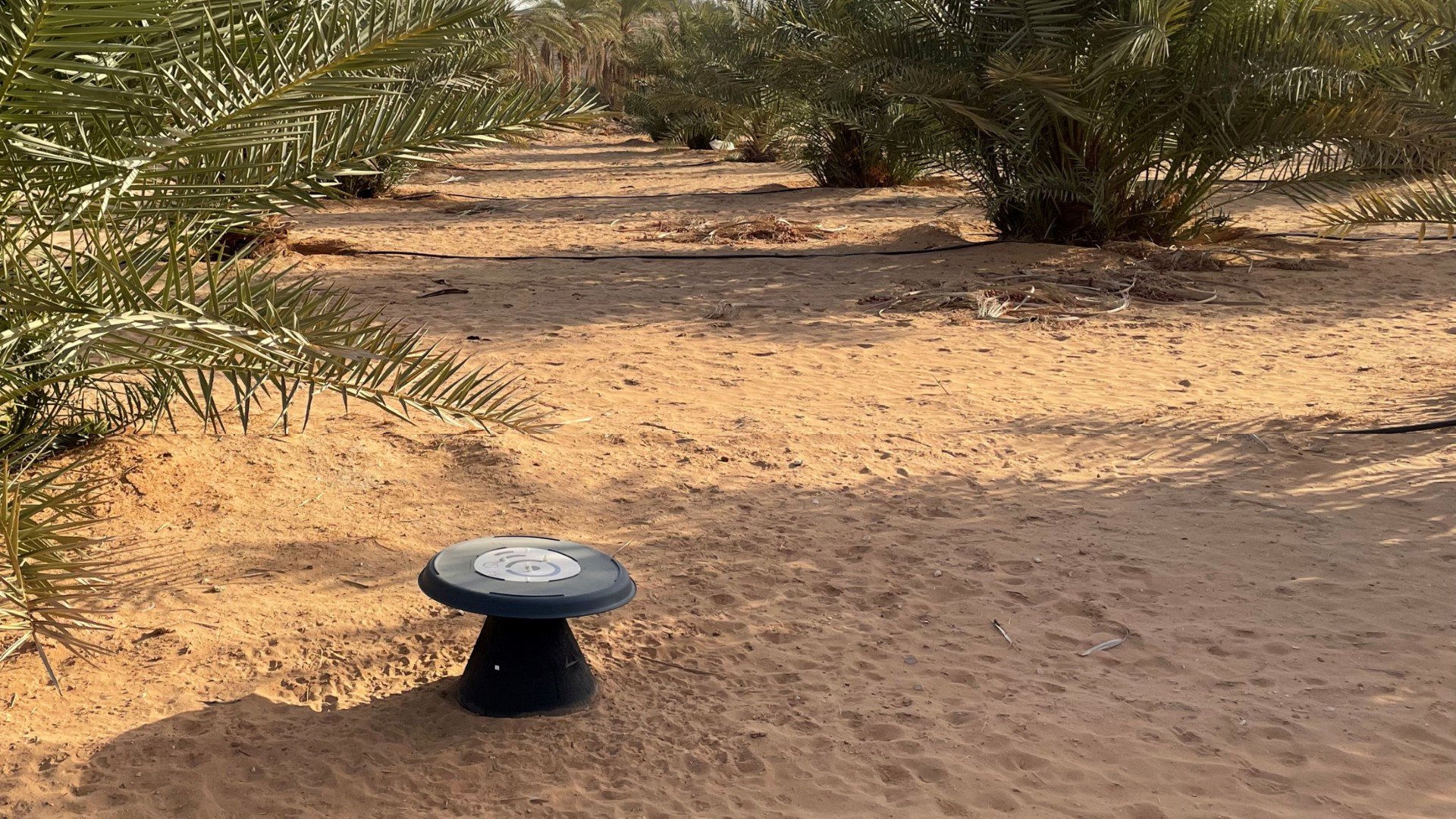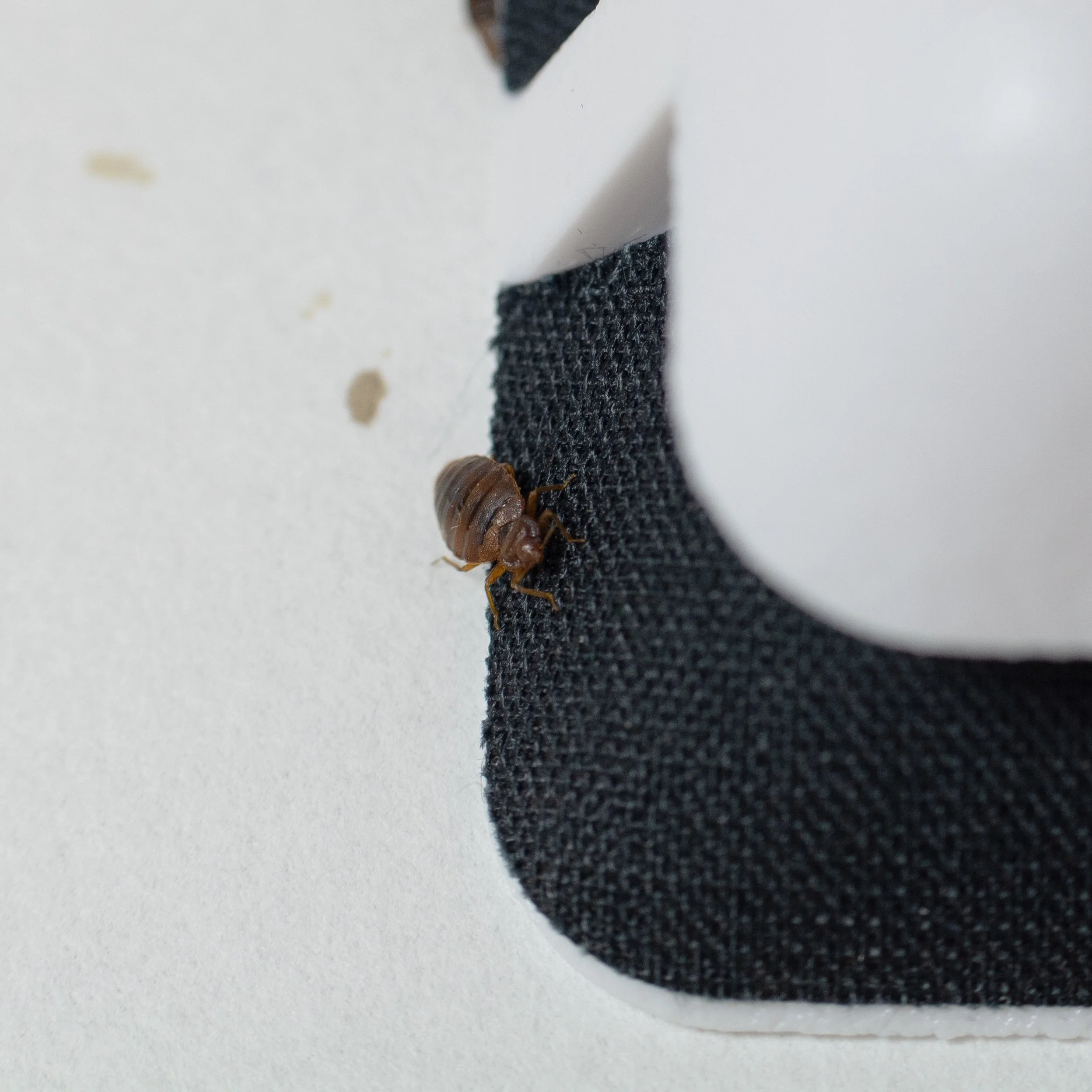From engineering sensors to earning the nickname "the bug guy," Robert Fryers co-founded Spotta to revolutionise pest monitoring with smart, ultra-low-power devices. Read about Spotta's journey and how the company has demonstrated success across 18 countries, monitoring pests from citrus groves to hotel bedbugs.
Tell us a bit about yourself and what Spotta does
I never expected to be ‘the bug guy!’. My background is in engineering, which I studied at Cambridge, before going to work at the Technology Partnership where I specialised in low power sensors in challenging environments. This is where I met my cofounder, Neil. In 2013 we left to set up a product consultancy and in 2016, whilst prospecting in the pest control industry, we discovered that this was a huge market that was ripe for disruption/automation but had limited ambition. Hence Spotta was born.
Spotta focuses on providing early warning systems for pests and that means customers can get in early and prevent problems before they grow. That allows proactive, targeted treatment instead of blanketing everything with chemicals Our solution is a small, easy-to-install, ultra-low-power computer vision device, that doesn’t require on-device processing or streaming and can therefore run on one AA battery for a year.
We now have ten thousand pods installed in 18 counties, thereby proving the power of our technology. We have sales in monitoring Red Palm Weevils in Date Palms and are taking first orders for monitoring Asian Citrus Psyllid; this has decimated citrus growing in Florida and is now threatening Brazilian citrus. We even have a nicely growing market monitoring bed bugs in hotels.
What are your goals for Spotta for the next few years?
Many people don’t know that TAM in pest monitoring is $40bn and we are only just getting started in the tech automation of this market. Our immediate goal is scaling revenue in our three focus areas – Citrus, date palms and hotels. We’re currently fundraising to hit several million ARR in revenue, after which we’ll embark on a further growth round.
Ultimately, we are aiming to become a unicorn, transforming pest monitoring into a tech-enabled - proactive rather than reactive - industry.
What advice could you give an aspiring CEO?
I realise now that you need to have a clear vision of where you want the company to go as this really helps give clarity of purpose, both to the people you hire and in your fundraising journey. This vision can change over time; initially we were just focussed on the bed-bug market and driving to an exit in the £20-30M range, but now our vision has grown to wanting to have a global impact on the way the world manages pests and through this, reduce our reliance on harmful pesticides.
Do you have any fundraising advice you could share from your journey to date?
We have done 3 rounds so far and I have realised that DD runs both ways; you have to do DD on the people/funds you are talking to and not just the other way around particularly as everyone is keen to talk and take a first meeting and potentially waste
your time. Pre-qualify them – do they invest in your sector/geography, what is their ticket size and talk to other founders that they have invested in.
Also recognise that investors invest in momentum; we are raising a £2M round with 2/3rds committed, but those fundraising conversations have suddenly become much faster since we hit a big revenue inflection point in October this year.
How has having Cambridge Angels in your investor group assisted you?
Two main things – support and patience. We launched our bedbug product in February 2020, 2 weeks before hotels worldwide shut down because of Covid – not great timing! If it wasn’t for support from angels Spotta would likely be toast by now, but CA angels saw the bigger picture and that both the platform and the team had legs.
It has also been fantastic to have investors on our cap table who’ve ‘been there/done it’ before. Paul Anson has been brilliant as chair and our angels very much have the start-up culture in their veins.




